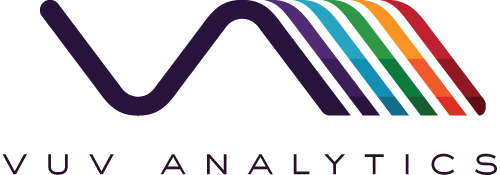
Verified Hydrocarbon Analysis (VHA) — the New Standard for Individual and Bulk Hydrocarbon Characterization
Detailed hydrocarbon analysis (DHA) has long been the go-to method of choice when it comes to robust analysis of various hydrocarbon streams. Consisting of a 100-meter column and a flame ionization detector, DHA necessitates long run times and a level of expertise to obtain results with confidence. Even with skilled analysts, results can often be misinterpreted due to the complexity of hydrocarbon streams and the only data point captured being retention time.
To address the concerns and challenges faced with DHA, VUV Analytics™ had developed a new application for the VUV Analyzer™ Platform for Fuels called Verified Hydrocarbon Analysis™ (VHA). VHA employs both retention time and vacuum ultraviolet (VUV) spectral information to speciate compounds commonly found in hydrocarbon streams, while fully characterizing the paraffin, isoparaffin, olefin, naphthene, and aromatic (PIONA) group composition of samples in a 49-minute automated analysis. VHA analysis will be demonstrated and compared to DHA in terms of performance, results, and total cost of analysis. This webinar will also introduce the VUV Analyzer Platform, which can also be used to run ASTM D8071 for gasoline analysis and ASTM D8267 for jet fuel analysis. Also, it will provide important details on accuracy, precision, and how laboratories can reduce analysis time and cost using this platform.
Key learnings:
- An introduction to the VUV Analyzer Platform for Fuels – a single platform for fuels analysis
- Introduction to Verified Hydrocarbon Analysis, an elevated approach to Detailed Hydrocarbon Analysis – which can also be done on the VUV Analyzer Platform.
- How laboratories can reduce the cost per analysis and reduce mistakes using Verified Hydrocarbon Analysis, including a case study.
Register Now
Speakers:
Alex Hodgson, Acting Applications Manager, VUV Analytics
Alex is the Acting Applications Manager at VUV Analytics, Inc. His current research focuses on fuels analysis, specifically the ASTM D8267 jet fuel method and the diesel method. He was also instrumental in the creation of vacuum ultraviolet applications for the flavor and fragrance industries, among a variety of other VUV-related endeavors. Prior to coming to VUV Analytics, Alex was a member of the Center for Disease Control’s team in Atlanta, where his research was on tobacco exposure biomarkers. He earned a B.S. in biochemistry from the University of Texas at Austin and an M.S. in biochemistry at the Georgia Institute of Technology.
Dan Wispinski, Standard Methods Development Manager, VUV Analytics
Dan is the Standard Methods Development Manager for VUV Analytics. In the 2 years Dan has been with VUV, he has been instrumental in the development and publication of ASTM D8071 for gasoline and soon to be published ASTM D8267 jet fuel. Dan’s tenure with multiple international standards boards has helped VUV complete the InterLaboratory Studies for each method in record time. Prior to joining VUV Analytics, Dan managed one of Canada’s top fuel testing research labs, InnoTech Alberta, formerly Alberta Research Council. Dan has over 36 years of experience in refined fuel specifications, biofuels, crude oil and bitumen. He is chairman of the Canadian General Standards Board Petroleum Test Methods Committee and an active member of ASTM, CGSB, IASH, CEN and the Energy Institute Working Group 6.
